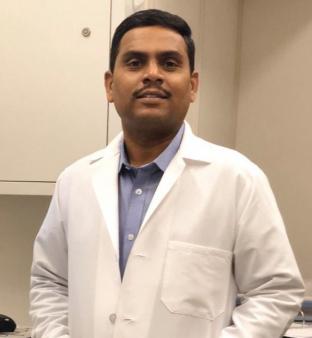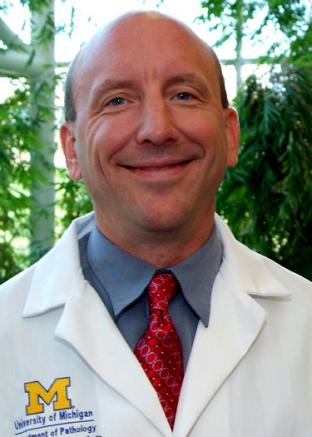I hold a PhD in Biochemistry (Banaras Hindu University, India) and currently work as a Research Fellow in the Pathology Department at the University of Michigan Medical School in the field of Lung Immunopathology. I am eager to use my training as an Immunologist to help expand the technology platforms available for treating diseases and believe that overcoming immune-mediated toxicity will be crucial for the future success of immunotherapy Enthusiastic and self-motivated biomedical research scientist with a strong background in immunology and infectious diseases. Lead multiple hypothesis driven projects resulted in identification of immunological, metabolic, and biochemical targets for the development of effective therapeutics. Demonstrated ability to function in an interdisciplinary environment and strong builder of prolific collaborations in different aspects of basic and applied research. Effectively trained/mentored young professionals, acting as a resource for providing scientific expertise and learning. Excellent time management skills, detail-oriented mindset, analytical skills and proven ability to beat tight deadlines. Completed 5 projects in 7 years of postdoctoral research with 10 peer-reviewed scientific publications.
Biography
Research Interests
I have joined Prof. Nicholas W. Lukacs lab, University of Michigan Medical School, Ann Arbor, Michigan to work on Respiratory syncytial virus (RSV) pathology, a virus that causes Asthma and Bronchiolitis. My current work focuses on understanding how the early life development of the immune system is critical to control the long-term outcome of subsequent pulmonary responses, including asthma. My research investigates the mechanisms involved in metabolic regulation of immune cells and their function during the pathophysiology of respiratory infections and allergic disease. My research further identified pathways that are critical for appropriate DC function dependent upon cellular metabolic processes that dictate immune phenotypes, and therefore expand our understanding of the mitochondrial mediated innate immune response during RSV infection and may contribute to therapeutic strategies to prevent chronic pathology. Identifying the fundamental links between host metabolism and immune response will unlock our understanding of how mitochondria dynamics and functions influence the intracellular survival of RSV in evading host immunity. My work will identify critical molecules and cellular pathways that can be targeted for the treatment and/or vaccine for the RSV infection. This raises the possibility of altering the immune response by influencing DC metabolism for therapeutic purposes not only for RSV pathogenesis but also for diseases such as autoimmunity and cancer.
Another important project that I am currently working is exploring the therapeutic potential of Immunoglobulin A (IgA) to induce mucosal tolerance against food allergies. This is a high priority research as 32 million Americans are living with potentially life-threatening food allergies. Every 3 minutes someone with food allergic reactions to emergency room. The induction of mucosal immune responses can occur throughout life, but the regulation of these responses is critical to avoid severe inflammation and unwanted immune responses that lead to disease. These include allergic diseases such as allergic asthma and food allergy responses in the GI tract. IgA is predominantly found at mucosal surfaces and provides protection from viral, bacterial and fungal pathogens. However, there is circumstantial evidence that IgA may also be involved in the protection from allergy development. Based on the efficacy of IgA my research has so far shown (unpublished) that IgA complexed with its specific antigen can provide a tolerizing signal in animals with an existing allergy response through the generation of Treg cells that can prevent the progression to chronic and severe responses in the lung and gut blocking asthma-like and food induced anaphylaxis. So, I plan to work on the molecular mechanisms of IgA induced tolerance, which include cytokine signaling and metabolomic profiling of the IgA specific cells, to propose that the development of allergen-specific IgA can be used as a therapy to treat ongoing allergic and/or autoimmune responses by generating antigen specific Treg cells to control the severity of the ongoing immune responses.
Techniques
Flow cytometry, Seahorse, Realtime PCR, Cytokine Multiplexing, primary cell cultures, In vivo mouse models of viral infection, and Food Allergy
Awards
SLB Travel Award 2019
Boehringer Ingelheim Travel Award 2009-2010
Hobbies and Extracurricular Activities
Hobbies: Meeting new people and knowing different cultures, playing soccer and cricket, Spiritual conversations.
I love to spend my time with Family and Church.
Awards
Society for Leukocyte Biology Travel Award 2019
Wellcome trust Postdoctoral fellowship 2012-2014
Boehringer Ingelheim Travel grant 2009-2010


